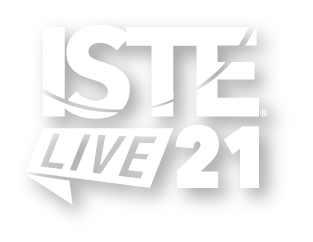

Embracing Esports for Increasing Student Learning and Campus Engagement |
Listen and learn : Research paper
Roundtable presentation
Research papers are a pairing of two 20 minute presentations followed by a 5 minute Q & A.
This is presentation 1 of 2, scroll down to see more details.
Other presentations in this group:
Dr. Julie Delello Dr. Rochell McWhorter Dr. Tonia DE GIUSEPPE| Audience: | Teachers, Teacher education/higher ed faculty, Technology coordinators/facilitators |
| Attendee devices: | Devices not needed |
| Topic: | Games for learning & gamification |
| Grade level: | Community college/university |
| Subject area: | Higher education |
| ISTE Standards: | For Education Leaders: Visionary Planner
Learner
|
There are millions of viewers and eSports players globally; there are hundreds of colleges and universities who are members of the National Association of Collegiate eSports (NACE) in the United States. In fact, eSports is one of the fastest growing sports on college campuses as students are both spectators as well as players. According to McGrath (2019), eSports has been a burgeoning “phenomenon over the past decade with about 1600 eSports clubs across 600 universities, and experts predict these numbers will continue to rise…[and expand] into elementary, middle, and high schools across the nation” (p. 201). As the understanding of eSports deepens, the effects of video gaming need to be reexamined and the benefits of playing such games explored (Cain, Landau, & Shimamura, 2012). This research will look at eSports from the perspective of student motivation and engagement. According to Bánya et al (2019), the exploration of the motivational patterns of eSports use is of utmost importance to study.
To further scientific and technological cooperation, an interdisciplinary research team from the United States and Italy collaborated on a mixed-methods research study to share interests and promote progress on the cutting-edge technology of electronic sports (eSports).
To this end, the first stage of the research consisted of gathering insights from students globally regarding their eSports habits. The team used an online survey, which had both closed and open-ended questions to compare student demographics, types of games watched or played, the amount of time played, grade point averages, risks, and personal and academic benefits to playing such games. This survey was approved by the Institutional Review Board and piloted by faculty and university students prior to the IRB. The survey was created in the online program Qualtrics and a link was generated to the survey. This link was posted on a recruitment flyer, translated in both English and Italian and posted to social media gaming sites (e.g. Twitter, Twitch, Facebook) and also shared by two universities in the U.S. and Italy. Students were also asked to share it with their friends and gaming networks. Specifically, the team wanted to identify whether students, over the age of 18, who are involved in eSports are more successful, motivated, and engaged in their academic life. Furthermore, the aim from this research was to start a pilot eSports program, that eventually grows into a varsity eSports team on one higher education campus.
Currently, the research team has collected over 500 global responses from students who play eSports. Approximately 50% of those responses are from the United States. This data will be analyzed and looked at within and across countries (multi-case study) to share with those at ISTE 2021.
Furthermore, to better understand how a university eSports team will enhance student life, foster teamwork, and increase collaboration and communication among our students, the interdisciplinary team will pilot an eSports arena on one campus in January of 2021. The team will create an updated survey and collect data from students enrolled in the eSports campus initiative. This additional survey will include items such as demographics, habits, perceptions of the initiative, health related information such as sleep and exercise habits; attendance records, tournament data, and grade point averages will be collected. Additional focus groups with the eSports team and those involved in the pilot program will be collected to help evaluate the strengths and weaknesses of the initiative in order to make the needed adjustments going forward. Also, this will further enhance the university infrastructure for research and education. We hope to have our preliminary lessons learned from this second set of data by the summer of 2021.
We anticipate finding that eSports motivates students, increases student enrollment and retention, and increases interdisciplinary and transdisciplinary collaborations with students and faculty. Bringing an eSports team to the university will impact the university and community in several ways. For example, we have the opportunity to engage with underrepresented groups, as well as to recruit and support minority students, and both graduate and undergraduate research students. We can connect in broader ways with our community and alumni.
There is currently a dearth of research on eSports as there has been some opposition to gaming on campuses in the past. However, "much of the resistance in bringing eSports teams to education is due to the lack of awareness and lack of understanding of how a video game competition can foster the skills desired in tomorrow′s society” (Rothwell & Shaffer, 2019). Reitman, Anderson-Coto, Wu, Lee, and Steinkuehler (2020) reviewed available published literature and noted that "eSports research has developed from nonexistent to a field of study spread across seven academic disciplines" (p. 1) including business, sports science, cognitive science, informatics, law, media studies, and sociology and is not confined to only a few localities but reported that the internationality of eSports is now a reality . This research has intellectual merit in that it is an emerging field with vast potential to advance knowledge for K-12 as well as higher education institutions to consider.
Andrade, D. (2020). eSports in K-12. CDWG. Retrieved from https://cdwgets.it/SrEdStrat
Anykey (2019). Diversity & inclusion in collegiate esports: Challenges, opportunities, and interventions. Retrieved from https://anykey-resources.s3.amazonaws.com/publications/AnyKey%20-
%20Diversity%20%26%20Inclusion%20in%20Collegiate%20Esports%20-
%20Challenges%2C%20Opportunities%2C%20and%20Interventions%20%28Oct%202019%29.pdf
Bányai, F., Griffiths, M. S., Király, O. &, Demetrovics, Z. (2019). The psychology of esports: A systematic literature review. Journal of Gambling Studies, (35), 351–365
https://doi.org/10.1007/s10899-018-9763-1
Burton, M. (2019). 10 colleges with esports degree programs. Animation Career Review. Retrieved from https://www.animationcareerreview.com/articles/10-colleges-esports-degree-programs
Bediou, B., Adams, D. M., Mayer, R. E., Tipton, E., Green, C. S., & Bavelier, D. (2017, November 27). Meta-Analysis of Action Video Game Impact on Perceptual, Attentional, and Cognitive Skills. Psychological Bulletin. Advance online publication. http://dx.doi.org/10.1037/bul0000130
Caldwell University (2019). Caldwell University eSports. Retrieved from
https://www.caldwell.edu/esports
Case, D. (2019). Varsity esports now at UTA: Under new coach, UTA debuts varsity esports team and enters first competition. The University of Texas at Arlington. Retrieved from https://www.uta.edu/news/news-releases/2019/09/19/varsity-eSports
Common Sense Education (2020). Ready Player One: Esports in K–12. Webinar. Retrieved from https://home.edweb.net/webinar/commonsense20200115/
eCampus News (2016). UCI to launch official e-sports gaming initiative. Retrieved from https://www.ecampusnews.com/2016/04/01/uci-e-sports-gaming/
DiFurio, D. (2019). A tale of three teams: How North Texas became the hottest spot for esports outside of LA. Dallas Morning News. Retrieved from https://www.dallasnews.com/sports/dallasfuel/2019/08/05/a-tale-of-three-teams-how-north-texas-became-the-hottest-spot-for-esportsoutside-of-la/
Entertainment Software Association (ESA) (2019). 2020-21 ESA Foundation esports scholarship program. Retrieved from https://www.esafoundationscholars.com/
Goslin, A. (2018). The 2018 League of Legends world finals had nearly 100 million viewers. Retrieved from https://www.riftherald.com/2018/12/11/18136237/riot-2018-league-of-legends-worldfinals-viewers-prize-pool
Gough, C. (2019). Number of unique viewers of League of Legends eSports championship finals from 2013 to 2018. Retrieved from https://www.statista.com/statistics/490522/global-eSports-marketrevenue/
Graham, B. A. (2017). eSports to be a medal event at 2022 Asian Games. Retrieved from
https://www.theguardian.com/sport/2017/apr/18/eSports-to-be-medal-sport-at-2022-asian-games
Kilgore College (2020). KC esports practice facility officially opens. Retrieved from
https://www.kilgore.edu/article/ribbon-cutting-for-new-kc-esports-practice-facility-set-for-march-2
Kobek, P. (2019). Teaching esports in high school actually raises GPA, says Microsoft-funded program. Retrieved from https://www.thegamer.com/teaching-esports-in-high-school-raises-gpa-microsoftfunded-program/
Lokhman, N., Karashchuk, O., & Kornilova, O. (2018). Analysis of eSports as a commercial activity. Problems and Perspectives in Management, 16(1), 207–213.
Illinois State University (2019). Esports coming to Illinois State. Retrieved from
https://news.illinoisstate.edu/2019/10/eSports-coming-to-illinois-state/
McAllister, J. (2018). Why Esports should be on your IT team’s radar. Ed Tech Magazine. Retrieved from https://edtechmagazine.com/higher/article/2018/11/why-eSports-should-be-your-it-teamsradar
McGrath, K. (2019). Leveraging eSports in higher education. In R. Rogers (Eds.), Understanding Esports: An Introduction to the Global Phenomenon, (pp. 201-203). Rowman & Littlefield.
McKenzie, J. (2019). Leveling up esports on campus. Retrieved from https://www.insidehighered.com/news/2019/10/16/bringing-esports-campus
North America Scholastic eSports Federation (NASEF) (2020). About. Retrieved from
https://www.esportsfed.org/about/about-the-federation/
The National Association of Collegiate Esports (NACE) (2020). About. Retrieved from
https://naceSports.org/about/
Olson, C. K. (2010). Children’s motivations for video game play in the context of normal development. Review of General Psychology, 14, 180 –187. doi:10.1037/a0018984
Reitman, Anderson-Coto, Wu, Lee, and Steinkuehler (2020). Esports research: A literature review.Games and Culture, 15(1). https://doi.org/10.1177/1555412019840892
Rothwell, G., &, Shaffer, M. (2019). Esports in K-12 and post-secondary schools. Educ. Sci. 9, 105. The University of Texas at Dallas (2020). University’s esports program makes name for itself in first season. Retrieved from https://utdeSports.com/news/universitys-eSports-program-makes-namefor-
itself-in-first-season/
The University of Texas Rio Grande Valley (2019). Games start: Rider esports brings gaming to UTRGV. Retrieved from https://www.utrgv.edu/newsroom/2019/09/12-game-start-ridereSports-brings-gaming-to-utrgv.htm
The University of Texas San Antonio (2020). Roadrunner gaming. Retrieved from
https://utsa.campuslabs.com/engage/organization/esportscommunity
Turner, P. E., Johnston, E., Kebritchi, M., Evans, S., & Heflich, D. A. (2018). Influence of online computer games on the academic achievement of nontraditional undergraduate students. Cogent Education, 5:1, DOI: 10.1080/2331186X.2018.1437671
Weber, J. (2019). Esports on campus: A new era of competition and study. Retrieved from https://www.ecampusnews.com/2019/07/24/eSports-on-campus-a-new-era-of-competition-andstudy/
World Economic Forum (2016). New vision for education: Fostering social and emotional learning through technology. Retrieved from http://www.weforum.org/reports/new-vision-for-educationfostering-
social-and-emotional-learning-through-technology
Zalaznick, M. (2019). How higher ed is shaping the business of esports. Retrieved from https://universitybusiness.com/colleges-shape-esports-business-management-degree-programs/


